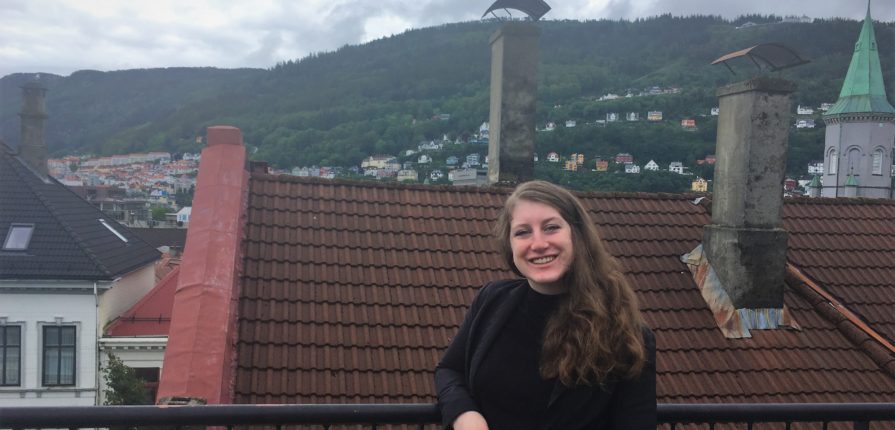Olive Dwan has been studying children’s rights as a Fulbright U.S. Student Program grantee at the Centre.
First of all, what is Fulbright?
The Fulbright program, founded by a U.S. senator, partners with countries around the world to strengthen international and intercultural understanding and exchange. Through Fulbright grants, students and scholars spend one academic year in another country, conducting research and/or teaching. I have developed my own research project and have been privileged to be under the supervision of Professor Marit Skivenes at the Centre for Research on Discretion and Paternalism.
What is your research project about?
I have been investigating children’s rights in the Norwegian asylum process. The United Nations Convention on the Rights of the Child sets forth the fundamental rights of all children, including the child’s “right to be heard”. Norway has not only ratified the Convention, but also incorporated it into national legislation.
My research questions was; What does the Convention, particularly the child’s “right to be heard” mean for young people who seek asylum in Norway, particularly those who are unaccompanied? And how do professionals, particularly legal guardians, in the Norwegian asylum process “hear” unaccompanied minors who seek asylum?
To investigate these questions, I interviewed professionals, including legal guardians, who work in the asylum process and scholars of children’s rights and law. Legal guardians are to protect unaccompanied minor asylum seekers’ “right to be heard”. However, the realities of the asylum process, including the duration, instability, and uncertainty of the process, the fact that young asylum seekers may move to different places, and how legal guardianship works pose challenges for guardians to properly “hear” young asylum seekers.
Why did you choose Bergen for your Fulbright?
The interdisciplinary academic environment provided by the Centre for Research on Discretion and Paternalism and Professor Skivenes’ children’s rights expertise brought me to Bergen for my research.
During my stay, I have attended research seminars at the Centre for Research on Discretion and Paternalism, with presentations from the Centre’s researchers, visiting scholars and fellow students on different topics. Here, I also had the opportunity to present my research in progress.
What else have you done as a Fulbright student at the University of Bergen?
I also participated in the master’s course “Discretion and Paternalism” taught by Professor Marit Skivenes, where I learned about theories foundational to the understanding of the welfare state and the child welfare system.
In addition, I have been volunteering at the Centre, assisting with administrative tasks. I have participated in the Centre’s Pro Bono Group and been involved in designing an experimental survey. I have also volunteered at the Centre on Law and Social Transformation (LawTransform).
Through these different activities, I have become a part of an international and interdisciplinary community of students, researchers, and scholars.
What has been the highlight of your exchange year?
To supplement my research in Norway, I traveled to Melilla in April to gain an understanding of its migration context for young people. Many young migrants travel through Melilla – a Spanish enclave in North Africa – and then across the Mediterranean to Europe.
I attended a student program alongside students from Norway and a German university. Together, we participated at an international conference about migration, visited accommodation centers for young migrants and learned about the challenges facing these centers. We also travelled across the Spanish-Moroccan border to Nador for an afternoon.
What are your reflections on your year as a Fulbright student in Bergen?
The quality of the cultural and academic environments in Bergen is striking. Demonstrated in its architecture, museums, and concerts, the city is artistically rich. The academic resources at the Centre for Research on Discretion and Paternalism and the University of Bergen, among other institutions in Bergen, are abundant.
I will leave Norway with not only new scholarly knowledge, but an understanding of the country and its cultures, and a connection to the people whom I met.
Olive Dwan
- Nationality: United States
- Age: 23
- Education: Bachelor’s degree in sociology/anthropology and studio art from St. Olaf College in Minnesota, U.S.
- Future plans: Business Analyst in the Consulting Development Program at Optum of UnitedHealth Group in Minnesota, U.S. (beginning in September 2019)
Read also Olive Dwan’s blog fulbrightbergen.home.blog
The statements in this interview only represents Olive Dwan, and is not representative of the Fulbright U.S. Student Program.


